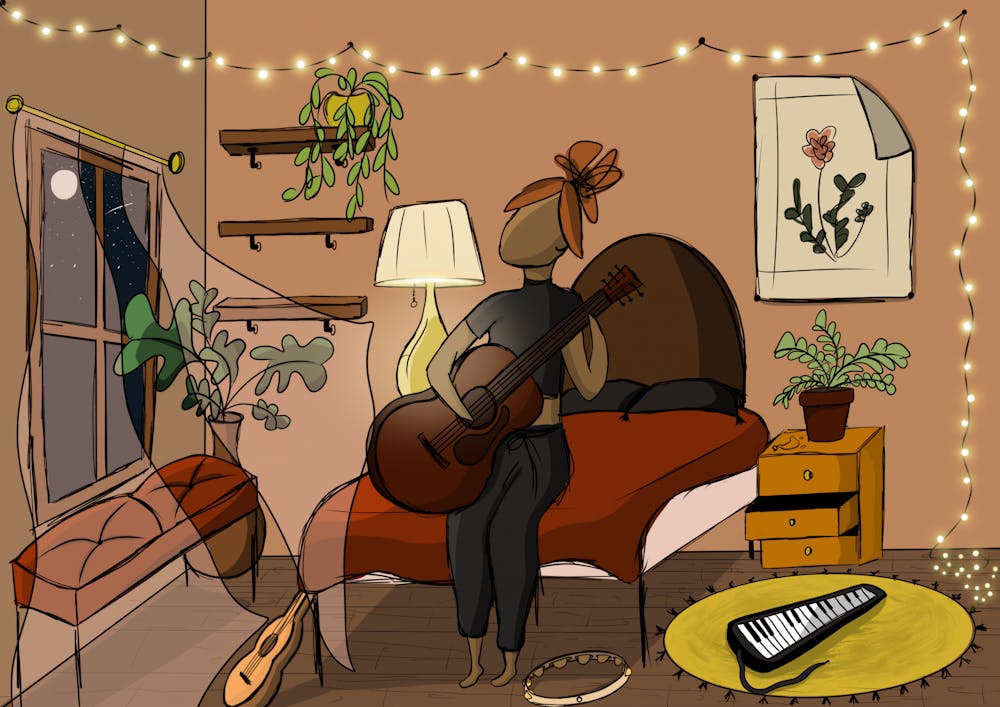Although quarantine is largely over, restaurants and stores are at limited capacity, events are postponed and internships and jobs are cancelled, still leaving us with quite a bit of free time.
All this free time provides a great opportunity to do something most people say they want to do in their lifetime but never quite get around to — learning an instrument. With more inexpensive options than ever before and way too much time to learn and practice, now is the perfect opportunity to get into music and enjoy the many benefits it has to offer.
If you’re asking yourself why you would spend time and money on a new hobby you’ve never thought about before, you may be convinced by the many physiological benefits of learning to play music. A study conducted by the American Psychological Association at the University of Kansas Medical Center found that playing music when you’re young can help maintain cognitive abilities as you age, regardless of whether you continue to play after youth.
The participants of the study each underwent an assessment of their cognitive skills, including verbal function, memory and attention. The experiment found that “Those who had studied music the longest performed best, followed by the next group of musicians. The non-musicians scored lowest on all tests.”
Music skills provided a clear advantage to those participants who had played from a young age, and the younger they began, the better. For college students seeking to get the most out of these cognitive advantages, now is a very opportune time to start.
Aside from keeping you sharp as you age, learning and playing music has the incredible ability to regulate mood and reduce stress. Listening alone is known to reduce the heart rate and blood pressure, two factors very closely associated with stress.
According to an article by Robin Lloyd titled “Amazing Power of Music Revealed,” “music has also been found to ease labor pain, reduce the need for sedation during surgery, make you smarter, and diminish depression.”
Music offers an array of mental benefits that could be especially helpful during the COVID-19 pandemic, which has been and continues to be a particularly stressful time for everyone.
On a less analytical note, learning an instrument isn’t as hard as you think. Speaking from experience, I can say instruments like the piano, guitar, and variations of the two, like the melodica or ukulele, take only a matter of days or weeks of practice to be played well enough to have fun. And we all have plenty of free time on our hands for the moment – might as well spend it learning a skill that is beneficial, fun and impressive.
If the price tag on an instrument is what’s stopping you from learning, there are relatively inexpensive options that still provide a good experience.
For under $100, you can get your hands on simple instruments like harmonicas, kalimbas or melodicas, and even more involved options like ukuleles or miniature keyboards. Amazon carries a huge selection of budget instruments, reviews for all of which can be found on YouTube and elsewhere online. Finding an instrument you’ll love is as simple as doing some research and choosing an option that’s right for you.
Above all, music is fun and incredibly rewarding. A love of musical creation and performance can bring you closer to so many people and can offer something to do that is both entertaining and gratifying.
We may be on the tail-end of quarantine, but the remaining few weeks of isolation offer a perfect opportunity to learn an instrument, and who knows? You may find a passion for music that lasts a lifetime, and there’s never been a better time to find out.

